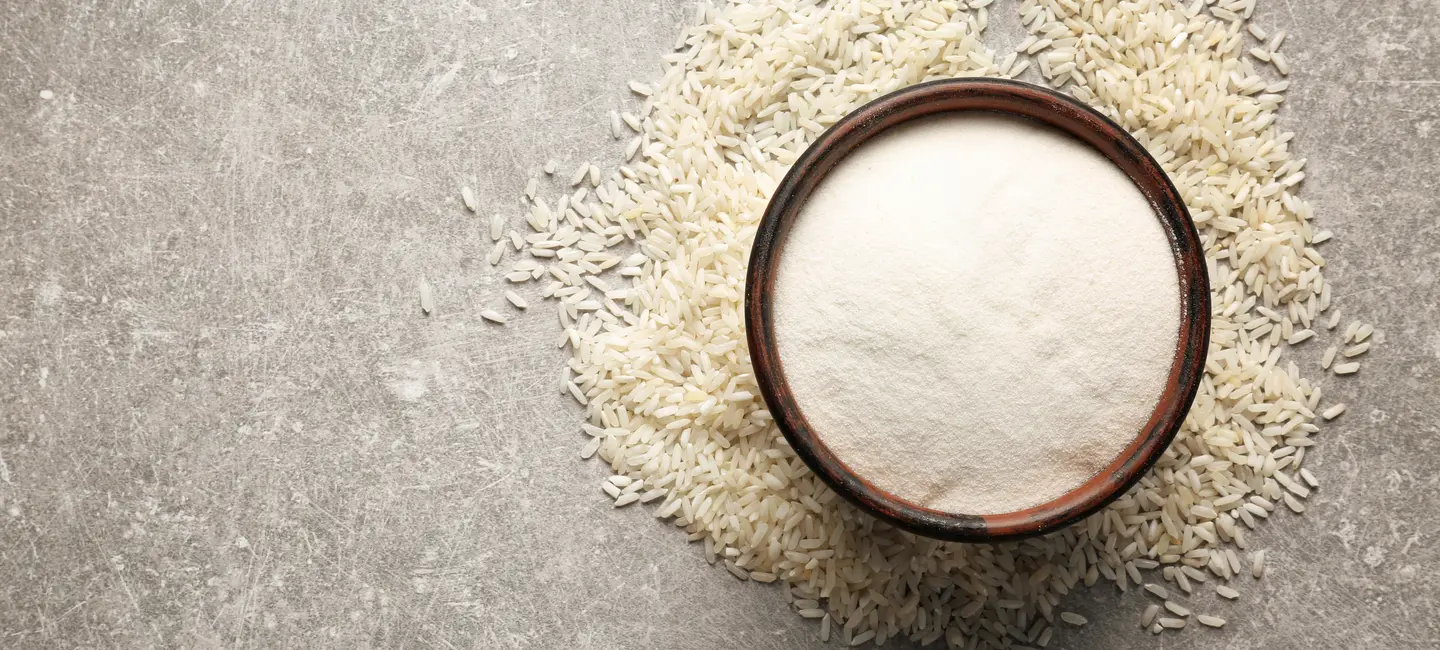
Rice protein is protein that has been taken from rice. Sometimes it is broken down into smaller pieces. Rice protein that is broken down into smaller pieces is called rice protein hydrolysate.
Rice protein is taken by mouth for muscle strength and muscle soreness. It is also used in infant formulas for babies who are allergic to cow's milk.
Rice protein is used in skin and hair products.
Is It Effective?
NatMed Pro rates effectiveness based on scientific evidence according to the following scale: Effective, Likely Effective, Possibly Effective, Possibly Ineffective, Likely Ineffective, Ineffective, and Insufficient Evidence to Rate.
- Food allergies. Most infant formulas are made with protein that comes from cow's milk. If an infant is allergic to cow's milk, a special form of cow's milk formula can be used instead. But this type of formula often tastes bitter. Most research shows that rice protein formulas can be a good protein replacement for these babies. When rice protein is used in formula, it is broken down into smaller pieces and some additional nutrients are added to make it a complete source of nutrition for infants.
- Muscle soreness caused by exercise. Early research shows that taking rice protein in water immediately after exercise works as well as whey protein for reducing muscle soreness after exercise.
- Muscle strength. Early research shows that taking rice protein in water immediately after exercise works as well as whey protein for building muscle strength.
Is it Safe?
Rice protein provides the body with nutrients called amino acids. The kinds of amino acids in rice protein might help to protect the body from too much sugar in the blood. They might also help to reduce blood pressure and blood fats.
When taken by mouth: Rice protein is POSSIBLY SAFE when used as an ingredient in foods.
When applied to the skin: Rice protein is POSSIBLY SAFE.
Special Precautions & Warnings:
Children: Rice protein is POSSIBLY SAFE when used orally by children 1 month of age and older. It has been used safely as a special form of infant formula by infants who are allergic to cow's milk. But some infants can be allergic to rice protein, so this type of formula should only be used under the supervision of a healthcare professional.
Rice contains inorganic arsenic, which can be unsafe in large amounts. Look for products that include the amount of arsenic on the label.
Pregnancy and breast-feeding: There isn't enough information to know if rice protein is safe to use when pregnant or breast-feeding. Stay on the safe side and only use amounts found in food.
Medications for high blood pressure (ACE inhibitors)
Interaction Rating=Moderate Be cautious with this combination.
Rice protein inhibits a chemical called ACE in the body. Medications called ACE inhibitors are used to decrease blood pressure. Taking rice protein along with these medications called ACE inhibitors might cause your blood pressure to go too low.
Some ACE inhibitors include benazepril (Lotensin), captopril (Capoten), enalapril (Vasotec), fosinopril (Monopril), lisinopril (Prinivil, Zestril), moexipril (Univasc), perindopril (Aceon), quinapril (Accupril), ramipril (Altace), and trandolapril (Mavik).
There are no known interactions with herbs and supplements.
There are no known interactions with foods.
The following doses have been studied in scientific research:
BY MOUTH:
- For food allergies: Infant formula containing rice protein and other nutrients has been used as the only source of food for infants between 1-6 months of age. It has been used along with other foods in children between 6 months and 2 years of age.
Extensively Hydrolyzed Rice Protein, Extensive Rice Hydrolysate, Hydrolyzed Rice Bran Protein, Hydrolyzed Rice Protein, Partial Rice Hydrolysate, Partially Hydrolyzed Rice Protein, Rice Bran Protein, Rice Endosperm Protein, Rice Protein Hydrolysate, Rice Protein Isolate.
Information on this website is for informational use only and is not intended to replace professional medical advice, diagnosis, or treatment. While evidence-based, it is not guaranteed to be error-free and is not intended to meet any particular user’s needs or requirements or to cover all possible uses, safety concerns, interactions, outcomes, or adverse effects. Always check with your doctor or other medical professional before making healthcare decisions (including taking any medication) and do not delay or disregard seeking medical advice or treatment based on any information displayed on this website.
© TRC Healthcare 2024. All rights reserved. Use and/or distribution is permitted only pursuant to a valid license or other permission from TRC Healthcare.
